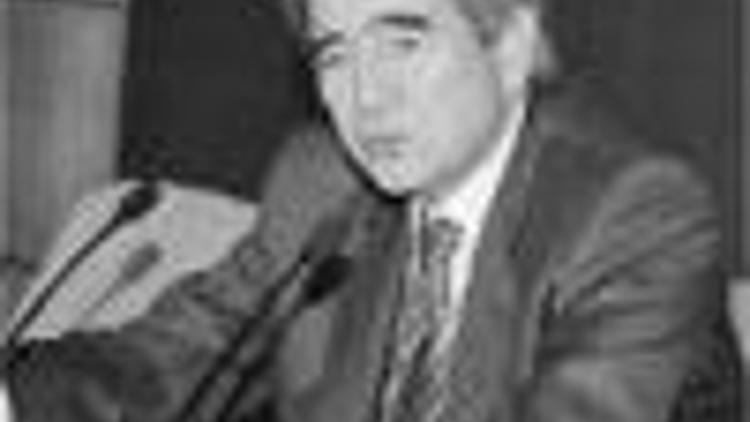Experts say NATO needs better EU ties
Güncelleme Tarihi:

ISTANBUL - NATO’s new strategic mission needs have a comprehensive military and political approach that encompasses wider participation by civil society organizations and universities, according to the prevailing view at a recent conference on the alliance’s redefined role.
Titled "Redefining the Security and Transatlantic Diplomacy Role of NATO For the 21st Century," the conference was organized in Istanbul by Arı Movement, an independent civil society organization. It focused on NATO enlargement, the alliance’s relations with the European Union and its new missions outside of the European geography.
While participants praised NATO’s role during the course of its past 60 years, they also emphasized the significance of shaping a strategic concept, particularly in the aftermath of the 9/11 attacks in New York.
"During the past 10 years, the strategic landscape has changed," said Stefanie Babst, NATO’s deputy assistant secretary general for public diplomacy, adding that the organization "has moved from being into doing." The new strategic concept should take into account two main events, the Sept. 11 attacks and the existing situation in Afghanistan, she added.
"The new strategic concept also should be a political one as well," Babst said. "It should have a renewed clearer vision about core tasks, and it should prioritize main tasks." In this respect, the new concept has to address military and political issues together, according to Babst.
In an interview with the Hürriyet Daily News & Economic Review, Babst also underscored the significance of the political process over the determination of NATO’s new strategic concept, which will involve the participation of civil society organizations, universities and think tanks. Babst said that the new strategic concept is not just a NATO document: "It is a joint vision of NATO countries that would like to develop the alliance both politically and militarily."
Ural Aküzüm, chairman of the Arı Movement, emphasized the "engagement of civil society in the improvement of international security."
But Solomon Passy, from Bulgaria, drew attention to NATO’s image. A member of parliament and a former foreign minister, Passy highlighted the need to improve the alliance’s image.
"NATO deserves a Nobel Prize for what it did in the last 60 years, but instead it has to defend itself in the press," Passy said. "If we succeed in winning public opinion, we can make a huge impact." NATO-EU relations was another major topic discussed throughout the conference. Passy said relations between the two entities needed to improve and be deepened. "The relations between these two organizations are very poor," he said.
No systematic cooperation
Vahit Erdem, a member of the ruling Justice and Development Party, or AKP, and head of the Turkish delegation to NATO’s parliamentary assembly, agreed, saying that relations between NATO and EU had not reached desirable levels. "While NATO has better military capacities, EU has better civil relations. In this respect, these two organizations need to act in a complementary manner," Erdem said. "The relations between these two organizations should be strengthened, particularly in Afghanistan and Kosovo."
Senior political scientist Stephen Larrabee agreed with Povejsil, claming Turkey was the main obstacle in boosting NATO-EU ties. "Turkish blockage of closer NATO-EU cooperation is short-sighted and not in Turkey’s interests," Larrabee said.
Turkey avoids negotiations on NATO-EU cooperation, as long as Greek Cyprus a member of EU but not recognized by Ankara is present at the talks. Turkey argues, decisions taken in the past foresee the exclusion of Greek Cyprus from the talks. The EU however acts in solidarity with Greek Cyprus and does not accept excluding it from the talks.
Ukraine hopes for NATO membership
Borys Tarasyuk, former Ukrainian foreign minister, expressed hope of becoming a member of NATO. In an interview with the Daily News, Tarasyuk noted that his country’s relations with Russia have not been easy since Ukraine’s independence, adding that the current tension with Russia does not just stem from Ukraine’s bid to join NATO.
"We have experienced different problems including gas and energy supplies since our independence. For instance, we had a gas crisis with Russia, similar to the one we faced this January, three years ago," Tarasyuk said. He said Ukraine was almost invited to be a member of NATO in 2006.
"However, the country’s then prime minister, Viktor Yanukovich, said Ukraine was not ready, and afterwards it was destroyed. Ukraine will be member of the alliance as well as Georgia," Tarasyuk said, adding that Ukraine had been cooperating with the alliance for the last three years. "In a matter of some five years, a consensus may appear in NATO." Tarasyuk added that Ukraine was ready to enter NATO from a military standpoint, according to experts.

